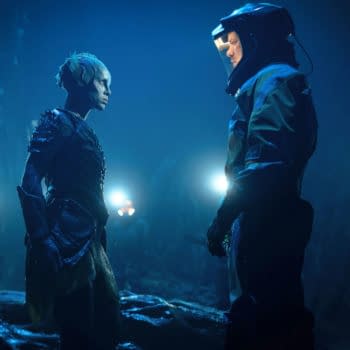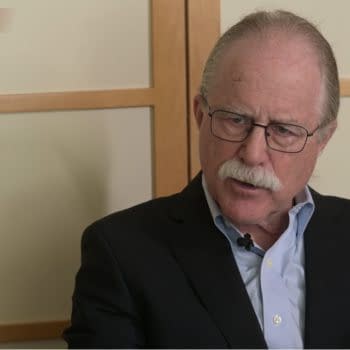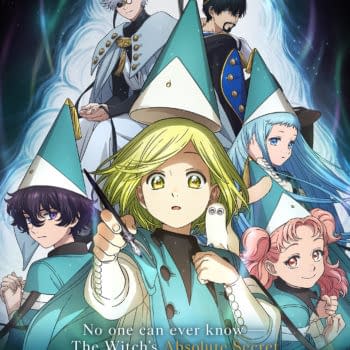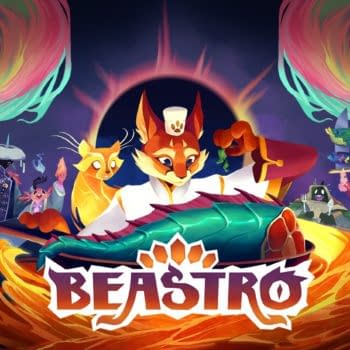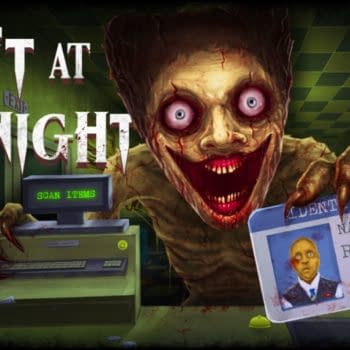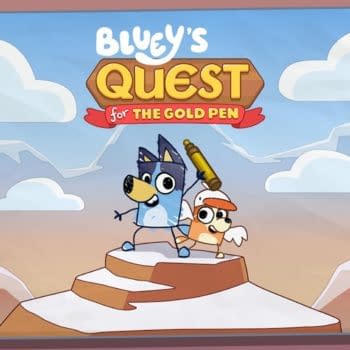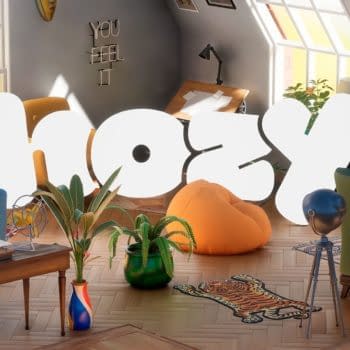Posted in: Games, Sony Interactive Entertainment, The Last Of Us Part II, Video Games | Tagged: bioschock infinite, bioshock, naughty dog, Sony Interactive Entertainment, the last of us, videogames
Opinion: The Ending Of The Last Of Us Is Not That Deep
The Last Of Us is considered a major milestone in games. A post-apocalyptic tale set in a pandemic-ridden America where society has broken down into balkanized towns, barely scraping by. Everyone lives in fear of a spore that turns the infected into cannibalistic mutations, and a fascistic government fighting against a rebel uprising called the Fireflies. During its first year of release, the game was acclaimed by game writers all over the internet praising its emotional depth and the poignant surrogate father-daughter story of Joel and Ellie that drives the heart of the story. They were especially enamored with the ending where Joel chooses Ellie over sacrificing her to save the world. It was a morally complex conclusion about one man's selfishness because he could not bear to lose the surrogate daughter he came to love.
Except it's not morally complex at all.

The Last Of Us: That Ending
You see, the entire plot was about Joel agreeing to deliver Ellie to the Fireflies. She had immunity to infection that might prove the key to developing a cure or a vaccine. That would have given the Fireflies the edge they needed to save the world and restart a civilized society. Having a cure would give them the leverage they needed over the crumbling fascistic government that everyone hated. Joel and Ellie take months and cover hundreds of miles to get her across the country to the Fireflies' headquarters. Then they get there and are knocked unconscious by the Fireflies. When Joel wakes up, the Fireflies' leader Marlene tells him that Ellie is sedated and about to be cut open by the doctors the remove the part of her brain where the immunity resides. That would effectively kill her. The Firefly troops are ready to toss him out on his ear when he turns around, grabs a weapon, and starts shooting his way to get to Ellie. He kills a whole bunch of Fireflies and also Marlene to make sure they never come after her again. After Ellie wakes up, Joel lies to her that they didn't need her for the experiments after all, as they had other immune people as test subjects, and none of it worked, so they gave up on finding a cure. Ellie asks Joel to swear he's telling the truth. He lies and swears, and she accepts it, but strongly suspects he's lying.
That ending was what made the story of the game truly memorable to many players. It was hailed as a moment of emotional, moral, and thematic complexity of the type Hollywood movies achieved in the 1970s. The Last of Us was praised as a game that elevated videogames towards a new emotional maturity.
Exactly it really isn't.
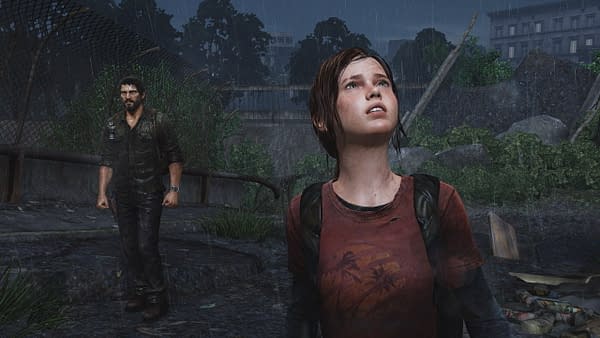
Joel Is Justified
When Joel starts shooting Firefly soldiers as he looks for Ellie, he finds several diaries and recordings from the doctors working on a cure. The doctors talk about cutting open and testing other subjects who had similar immunities to Ellies and didn't find a cure. They expressed despair over ever finding a cure, that they were killing these immune people in order to examine and test their brains for nothing. That means if the doctors cut Ellie open to examine her brain, they almost certainly would not find a cure. She would have died for nothing. Joel is completely justified in stopping the doctors from going through with killing her. I never saw any articles about the game talk about those recordings. They give Joel and the player a moral out in shooting his way through to rescue Ellie from the operating table.
And the Fireflies acted like complete scumbags who kept hitting Joel. They were supposed to be the good guys forced to make tough decisions to save the world, but they just acted like brutal fascists no different from the government troops they were fighting against. They were deliberately written as assholes rather than sympathetic or understandable people. That's either biased or sloppy writing, and either way, it makes you the play feel totally justified in playing Joel as he shoots and kills them to reach Ellie. If they had acted humanely and didn't push Joel around, even let him say goodbye to Ellie, it's possible he might have let them operate on her and kill her for the sake of Mankind. If you're supposed to feel bad about killing the Fireflies, the game failed to do that one jot.
What was Joel supposed to do? Let them cut Ellie open and kill her knowing that it would more than likely be a futile and senseless death? His choice is not complex at all. Sure, it's selfish, but the game totally sets it up as the only proper choice he can make. There is no ambiguity or nuance about it.
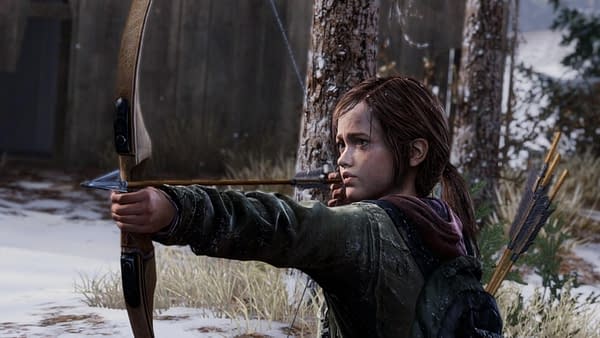
The Lazy Moral Equivalency of 2013 Video Games
The Last of Us was released in 2013, the same year as Bioshock: Infinite, and both games had similar political messages. Both featured a dishonest and disingenuous moral equivalency that that takes the attitude that politically and morally, both sides are as bad as each other. In The Last of Us, it was the fascistic governmental forces and the Fireflies. In Bioshock: Infinite, it was Comstock's racist regime and the Vox Populi (Latin for "people's voice") rebellion. By coincidence, both the Fireflies and Vox Populi were led by ruthless black women, Marlene and Daisy Fitzroy, who had been so wearied by the struggle that they too had become ruthless and merciless.
This equivalency that "both sides are bad" in both game stories comes off as cynical, nihilistic, and lazy. It sends the message that we shouldn't bother picking a side because both sides are bad. It breeds complacency in moral and political thinking that prevents any real change from happening by presenting stories where things will go to hell no matter which side is in charge. The two games are a harbinger of what was to come in the current political climate.





